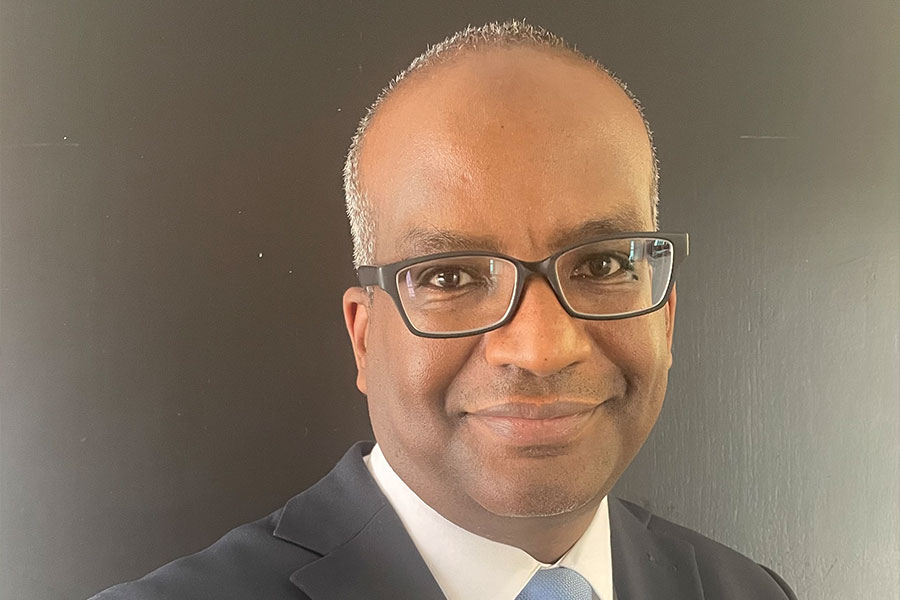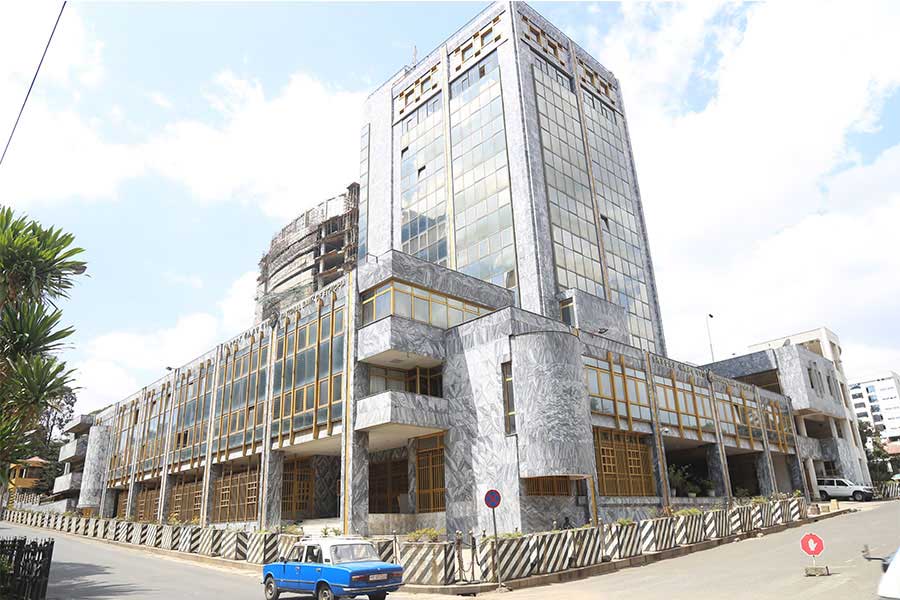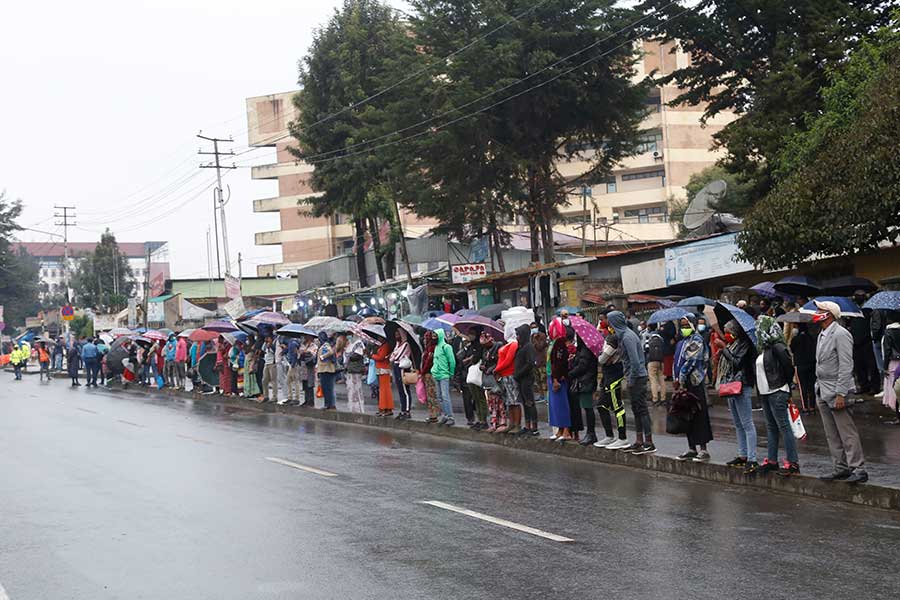
Aug 16 , 2025
By Eyasu Theodros
Ethiopia is undergoing one of the most ambitious financial reform drives in its modern history. With the economy under strain from foreign exchange shortages, inflation, and stagnant private investment, policymakers have turned to sweeping reforms that promise to unlock capital, boost trust, and modernise the country’s financial infrastructure. The challenge now is not policy design, but execution.
The federal government authorities made substantial progress on paper. They have introduced legislative reforms and pushed through structural changes meant to liberalise capital markets, attracting foreign capital, and stabilising the macroeconomic environment. A centrepiece of these efforts is the newly launched Ethiopian Securities Exchange (ESX), supported by a central securities depository.
Although activity remains minimal, the framework exists. Institutions are in place. So are incentives. What remains missing is traction.
The country’s chronic shortage of foreign exchange has birthed a thriving parallel market, which has morphed from a currency arbitrage mechanism into a visible barometer of public trust. Investors, both local and foreign, monitor exchange rates in the parallel market not merely for better pricing but for cues on institutional credibility. The formal financial system, by contrast, has failed to absorb available supply, mainly because it has not yet earned that trust.
The federal officials appear to recognise that long-term solutions, such as increasing exports or attracting substantial foreign direct investment, will require time. They have shifted toward the diaspora, whose remittances and investable capital represent the most viable short-term source of foreign currency. But converting goodwill into deposits and deposits into investment will require more than patriotic appeals or new rules. What is needed is a reliable and predictable system that mirrors the standards diaspora Ethiopians are used to in the United States, Canada, and Europe.
Time deposits in Ethiopia now offer returns of up to 16.5pc annually, considerably higher than the near-zero rates in developed markets. In theory, that should be enough to attract diaspora savings. But the trust gap remains wide. High interest rates are of little value if investors cannot confirm account security, repatriate profits, or resolve disputes through credible institutions. Yield without reliability does not inspire confidence.
Policymakers have taken steps to address this. Backed by programs from the International Monetary Fund (IMF), they have clarified rules around profit repatriation for foreign and diaspora investors, an important signal, and not simply symbolic. Regulatory frameworks have been strengthened, the Central Bank has become more active in oversight, and the legislative environment has improved. However, these top-down interventions require corresponding bottom-up implementation.
The burden now lies with the domestic financial sector, including commercial banks, capital market intermediaries, and regulators. Their role is not merely transactional. They should build investor-facing systems that meet international standards. That includes verifiable onboarding for diaspora accounts, transparent correspondent banking relationships, clear repatriation rules, and credible complaint resolution mechanisms.
These are not abstract concerns. In the post-2008 global financial landscape, correspondent banking relationships, once taken for granted, have become scarce. Heightened enforcement of anti-money laundering laws, the Bank Secrecy Act, and tighter know-your-customer (KYC) rules have made international banks more cautious. Even compliant African banks have been excluded from these networks simply for being outside the risk comfort zone. Without these relationships, Ethiopia’s banks cannot plug into global finance.
This context is particularly relevant for diaspora Ethiopians, whose financial expectations are shaped by their environments abroad. In mature markets, banks are regulated, deposits are insured, disclosures are standard, and legal recourse is clear. Visibility campaigns and promotional offers won’t suffice. Trust is built on structure, not slogans.
Inflation in recent years has eroded local purchasing power and decimated domestic savings. Ethiopia now faces a capital formation gap, one that diaspora inflows could help close. The math is compelling. U.S. savings accounts yield less than one percent. Even money market funds struggle to return more than four percent. Equities offer higher potential gains, but with substantial volatility. Ethiopian bank deposits, by contrast, can yield over 16pc with relative predictability. The opportunity is real, but so is the perception of risk.
A persistent narrative portrays Ethiopia’s foreign exchange crunch as purely structural. But a significant portion is behavioural, rooted in investor psychology and institutional credibility. Export earnings are sluggish, donor disbursements are unpredictable, yet remittances continue to flow, albeit through informal channels. This is where policy can make a difference, by formalising what already exists.
What is needed is a functioning system, including straightforward onboarding, transparent repatriation pathways, enforceable investor rights, and adherence to global norms. The current legal, regulatory and technical tools are already available. What is missing is institutional will.
Until Ethiopian banks and financial intermediaries shift from being order takers to becoming trust platforms, the diaspora will remain cautious. The government and the IMF have laid the groundwork. Laws are on the books. What comes next is not legislative but operational. The formal financial sector should now deliver not simply promises but performance.
The parallel market will not vanish on its own. It will persist, not as a failure of policy, but as a living referendum on the credibility of the system. Only when that trust is rebuilt, through concrete, verifiable, and user-friendly systems, will the opportunity of financial reform translate into capital mobilisation and lasting economic change.
PUBLISHED ON
Aug 16,2025 [ VOL
26 , NO
1320]


Viewpoints | Mar 20,2021

Fortune News | Apr 04,2020

Fortune News | Apr 28,2024

Commentaries | Jun 15,2024

Fortune News | May 14,2022

Fortune News | Sep 11,2020

Radar | Oct 10,2020

Commentaries | Jan 07,2022

Featured | Sep 06,2020

Fortune News | Sep 28,2019

Photo Gallery | 176588 Views | May 06,2019

Photo Gallery | 166799 Views | Apr 26,2019

Photo Gallery | 157335 Views | Oct 06,2021

My Opinion | 136925 Views | Aug 14,2021

Dec 22 , 2024 . By TIZITA SHEWAFERAW
Charged with transforming colossal state-owned enterprises into modern and competitiv...

Aug 18 , 2024 . By AKSAH ITALO
Although predictable Yonas Zerihun's job in the ride-hailing service is not immune to...

Jul 28 , 2024 . By TIZITA SHEWAFERAW
Unhabitual, perhaps too many, Samuel Gebreyohannes, 38, used to occasionally enjoy a couple of beers at breakfast. However, he recently swit...

Jul 13 , 2024 . By AKSAH ITALO
Investors who rely on tractors, trucks, and field vehicles for commuting, transporting commodities, and f...

Oct 18 , 2025
The political establishment, notably the ruling party and its top brass, has become p...

Oct 11 , 2025
Ladislas Farago, a roving Associated Press (AP) correspondent, arrived in Ethiopia in...

Oct 4 , 2025
Eyob Tekalegn (PhD) had been in the Governor's chair for only weeks when, on Septembe...

Sep 27 , 2025
Four years into an experiment with “shock therapy” in education, the national moo...

Oct 18 , 2025 . By NAHOM AYELE
In a sweeping reform that upends nearly a decade of uniform health insurance contribu...

A bill that could transform the nutritional state sits in a limbo, even as the countr...

Oct 18 , 2025 . By SURAFEL MULUGETA
A long-planned directive to curb carbon emissions from fossil-fuel-powered vehicles h...

Oct 18 , 2025 . By BEZAWIT HULUAGER
Transaction advisors working with companies that hold over a quarter of a billion Bir...